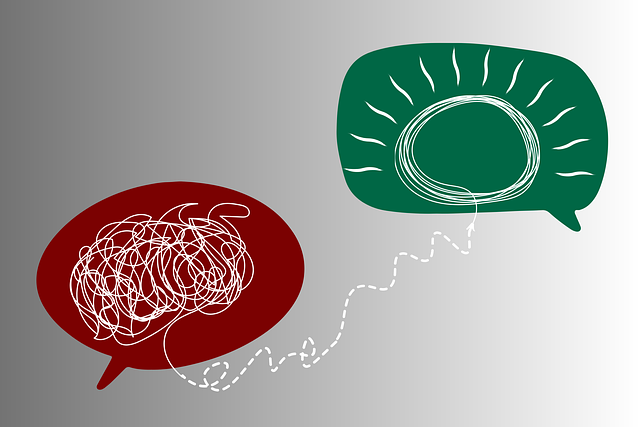Creating a safe, supportive environment in groups addressing drug abuse and mental health issues, like Lakewood Drug Abuse-Substance Abuse Therapy, is crucial for effective facilitation. This involves ensuring every member feels heard and respected through clear boundaries, active listening, confidentiality, and mutual support. Structured activities, interactive discussions, and peer support networks enhance therapeutic outcomes, while compassion cultivation practices break down defenses, foster trust, and encourage self-reflection, preventing burnout for facilitators. Establishing clear ground rules manages group dynamics, ensures respect, and encourages open communication without judgment, aiding risk management and stress reduction in a welcoming atmosphere aligned with broader mental health policy goals.
In the realm of mental wellness, group facilitation plays a pivotal role in fostering recovery and building resilient communities. This article explores effective techniques for facilitators navigating the intricate landscape of substance abuse therapy, specifically targeting Lakewood residents grappling with drug or alcohol addiction. From establishing a safe haven where individuals can openly share their struggles to employing creative expression as a therapeutic outlet, these strategies empower group members to support one another through every step of recovery. By delving into key aspects such as trust-building, active listening, peer engagement, and conflict management, we aim to equip facilitators with the tools necessary to revolutionize mental wellness care in Lakewood.
- Establishing a Safe and Supportive Environment
- – Creating trust and fostering openness
- – Setting ground rules for group dynamics
Establishing a Safe and Supportive Environment

Creating a safe and supportive environment is a cornerstone for effective group facilitation, especially when addressing sensitive topics like drug abuse and mental health issues. In the context of Lakewood Drug Abuse-Substance Abuse Therapy, fostering such an atmosphere encourages open dialogue and promotes inner strength development among participants. Facilitators should ensure every member feels heard, respected, and understood, allowing them to share their experiences without fear of judgment or stigma. This involves establishing clear boundaries, promoting active listening, and creating ground rules that emphasize confidentiality and mutual support.
By cultivating a non-judgmental space, facilitators can help individuals manage anxiety relief, a common challenge for those seeking therapy. Through structured group activities, interactive discussions, and peer support networks, members learn to navigate their mental health struggles together. This collaborative approach not only enhances the therapeutic experience but also aligns with the broader goals of Mental Health Policy Analysis and Advocacy by encouraging community engagement and collective well-being.
– Creating trust and fostering openness

Building a safe and supportive environment is fundamental to effective group facilitation, especially when addressing sensitive topics like mental wellness. Techniques that encourage trust and openness can significantly enhance the therapeutic process in groups, fostering a sense of community among participants. One powerful approach is incorporating compassion cultivation practices, which create a non-judgmental space where individuals feel heard and understood. This not only encourages self-reflection but also promotes empathy and connection among group members, making them more receptive to sharing their experiences and challenges.
In the context of Lakewood Drug Abuse-Substance Abuse Therapy, facilitators can employ various strategies to reduce barriers to openness. For instance, starting sessions with icebreakers or personal introductions that delve into participants’ interests and goals can help break down defenses. Additionally, guiding members through mental wellness journaling exercises can offer a private outlet for expression, allowing them to explore their thoughts and emotions while providing valuable insights for group discussions. By combining these techniques, facilitators create an environment conducive to vulnerability, which is essential for effective group therapy and burnout prevention strategies for healthcare providers.
– Setting ground rules for group dynamics

Establishing clear ground rules is an essential step in facilitating a supportive and safe environment for mental wellness groups. These rules serve as guidelines that help manage group dynamics, ensuring every member feels respected and heard. When facilitating a group, it’s crucial to set expectations regarding confidentiality, active participation, and respectful communication. For instance, encouraging members to share their experiences without fear of judgment fosters openness.
Additionally, ground rules can address specific needs, such as managing disclosure or setting boundaries for personal sharing. This is particularly relevant in the context of Lakewood Drug Abuse-Substance Abuse Therapy, where individuals may be dealing with sensitive topics. Well-defined rules aid in risk management planning for mental health professionals, ensuring the group’s well-being and the effective delivery of stress reduction methods within a structured yet welcoming atmosphere.
Effective mental wellness group facilitation begins with creating a safe, supportive environment in which participants feel trusted and open. Establishing clear ground rules for group dynamics is crucial for navigating sensitive discussions around Lakewood Drug Abuse-Substance Abuse Therapy. By fostering trust and implementing structured guidelines, facilitators can enhance the therapeutic experience, encouraging honest sharing and profound healing within the group setting.














